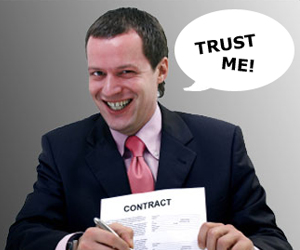For timeshare owners looking to escape the financial burden and contractual obligations of their ownership, selling their timeshare seems like a logical solution. However, the resale market for timeshares is rife with scams and deceptive practices. In this article, we’ll delve into the risks associated with selling your timeshare and expose the common scams that prey on desperate owners.
1. The Resale Market Challenge
The resale market for timeshares can be challenging due to oversupply, changing travel trends, and the saturation of the market. As a result, many owners struggle to find legitimate buyers.
2. Upfront Fees
One of the most prevalent scams in the timeshare resale market is the demand for upfront fees. Scam companies promise to market and sell your timeshare but ask for payment before any actual sale occurs. Often, these companies disappear after receiving payment.
3. Cold Calls and Unsolicited Offers
Timeshare owners are frequently bombarded with unsolicited offers from companies claiming to have a buyer ready to purchase their timeshare. Many of these offers are fraudulent or over-exaggerated.
4. False Appraisals and Valuations
Some resale companies offer free appraisals or valuations of your timeshare, which can be inflated to make your property seem more valuable than it actually is. This can lead to unrealistic pricing and difficulties in finding a genuine buyer.
5. Phony Buyer and Seller Interactions
Scammers may impersonate both buyers and sellers in fabricated transactions. This tactic can be used to lure in genuine sellers, who may fall victim to fraudulent deals.
6. Pressure Sales Tactics
Scam companies often use high-pressure sales tactics to push owners into quick decisions, leading to impulsive actions that can result in financial loss.
7. Fake Escrow Services
Scammers may set up fake escrow services that seem legitimate but are designed to take your money and never complete the transaction.
8. Unregulated Market
The resale market for timeshares is largely unregulated, making it easier for scammers to operate without fear of legal consequences.
9. Closing and Transfer Costs Scams
Scammers may request additional fees for closing and transfer costs, even though these are typically covered by the buyer. Owners who fall for these scams end up paying extra, with no sale to show for it.
10. Contractual Obligations
Even if owners manage to find a legitimate buyer, they may still be bound by contractual obligations, including maintenance fees and other expenses.
11. Exit and Release Scams
Some scam companies may promise to handle your timeshare exit, charging high fees for services that are often not fulfilled, leaving owners in limbo.
12. Resale Market Reputation
The reputation of the resale market is marred by scams, making it difficult for legitimate sellers to find buyers, even when their intentions are honest.
13. Self-Listing Risks
Owners who attempt to sell their timeshares independently also face risks, including being targeted by resale scams, scammers posing as buyers, and challenges navigating the complex market.
Conclusion
Selling a timeshare can be a treacherous endeavor due to the abundance of scams and deceptive practices in the resale market. Timeshare owners must exercise extreme caution and thoroughly research any company or individual involved in the resale process. Seek legal advice, engage with reputable resale companies, and be vigilant in avoiding upfront fees or high-pressure sales tactics. By being well-informed and cautious, owners can protect themselves from the risks and scams that plague the timeshare resale market.




